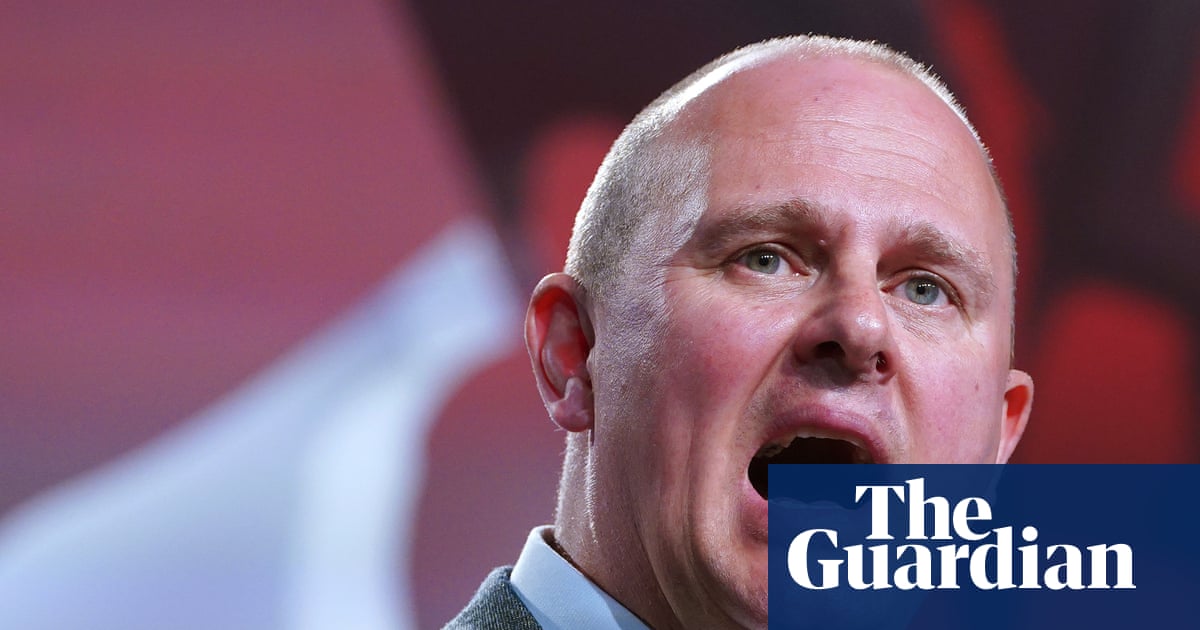Britain’s budget watchdog is in danger of strangling growth and should be modernised to ditch its “hardwired” support for austerity economics, the TUC has warned.
Less than two weeks before Rachel Reeves’s autumn budget, the trade union umbrella group said that the Office for Budget Responsibility (OBR) was at risk of being a “straitjacket” on growth in living standards.
It called for an urgent review into the OBR’s role at the heart of the chancellor’s budget-setting process from the earliest opportunity after her 26 November tax and spending statement.
Paul Nowak, the TUC general secretary, told the Guardian: “I don’t think the chancellor, whatever happens at the budget, wants to go down the road of austerity 2.0.
“But we’ve got a fiscal watchdog that is effectively hardwired to support that slash and burn approach to our public services.”
Reeves is understood to be furious with the OBR over the timing of a revised productivity forecast that is expected to blow a hole in the public finances of up to £20bn at the budget, putting her fiscal rules in danger.
Taken together with the hit from higher borrowing costs and Labour’s welfare U-turns, the chancellor is widely expected to raise taxes and cut spending in two weeks’ time to recover headroom against her fiscal target.
Amid thinly disguised anger inside the Treasury, irked Labour figures have highlighted that if the OBR had cut its forecasts at an earlier stage – for example in 2023 – then the Tories’ pre-election tax cuts might have been ruled out as unaffordable.
The chancellor is thought to have received updated OBR forecasts cutting its assumption for trend productivity growth by 0.3 percentage points. The watchdog has produced successive forecasts anticipating a return close to the rates of productivity growth recorded before the 2008 financial crisis, despite the country’s failure to do so for the best part of two decades.
Calling for a post-budget review, the TUC argued the watchdog could not escape questions about how it had got its previous forecasts so wrong. It said the OBR could not escape scrutiny for its part in setting up the chancellor’s tough choices.
Nowak said: “The timing on the OBR’s productivity view was baffling. Why didn’t they publish at the end of the last government, or the outset of this one, giving them certainty to plan from?
“That’s why it’s time we urgently review whether the OBR is fit for purpose. The watchdog has serious questions to answer and is in urgent need of modernisation to stop it from being a drag on growth.”
Established by the former Conservative chancellor George Osborne in 2010, the watchdog has faced criticism from across the political spectrum in recent years amid a steadily worsening position for the UK economy and public finances.
after newsletter promotion
The TUC said the watchdog had effectively served as a “cheerleader for austerity” since its establishment, and failed to take into sufficient account benefits from long-term investment in the economy.
Liz Truss railed against the OBR and sidelined it from her 2022 mini-budget, contributing to the bond market meltdown that greeted her unfunded tax-cutting plan.
Reeves sought to turn the episode to Labour’s advantage in last year’s election campaign by promising to strengthen the OBR’s role as she warned voters the Tories should never be trusted with the economy again.
Many within Labour ranks have since grown increasingly disgruntled after the chancellor opted to slash welfare spending in her spring statement to avoid breaking her fiscal rules – leading her to consider scaling back the OBR’s twice-yearly forecasts to a single set of projections that would be published alongside the autumn budget.
The TUC called for a single forecast to slow the “rollercoaster of speculation” and patchwork solutions to fill forecast funding gaps. The International Monetary Fund has suggested the UK could assess compliance with its fiscal rule just once a year, although urged the government to continue publishing biannual forecasts.
The OBR declined to comment. A Treasury spokesperson said: “We respect the OBR’s independence and won’t comment on speculation ahead of their forecast which will be published on 26 November.”
